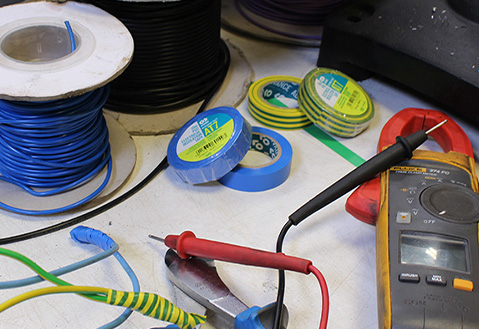The Importance of Red and White Floor Marking Tape in Safety and Organization
In today’s fast-paced world, maintaining a safe and organized environment is crucial, particularly in settings such as warehouses, factories, and commercial spaces. One of the most effective tools that assist in achieving this goal is red and white floor marking tape. This vibrant, attention-grabbing tape plays a vital role in demarcating areas, guiding traffic flow, and ensuring compliance with safety regulations.
Understanding Red and White Floor Marking Tape
Red and white floor marking tape is a type of adhesive tape specifically designed for use on floors. The bold colors serve a dual purpose red typically indicates danger or caution, while white denotes boundaries or designated areas. Together, they create a vivid contrast that enhances visibility and reinforces the message being communicated. This tape is usually made from durable materials, ensuring that it withstands heavy foot traffic, machinery movement, and various environmental conditions.
Applications in Various Industries
The versatility of red and white floor marking tape makes it an invaluable asset across multiple industries. In manufacturing facilities, for instance, the tape is commonly used to establish walkways, equipment zones, and no-go areas to prevent accidents. Employees can quickly identify safe routes and hazardous zones, reducing the likelihood of workplace injuries.
In the healthcare sector, clear floor markings are essential for guiding patients, visitors, and staff. Red and white tape can indicate emergency exits, patient paths, or areas requiring extra caution, such as where hazardous materials are stored. The implementation of such visual cues contributes to an efficient workflow and enhances overall safety.
Retail environments also benefit from the strategic use of floor marking tape. It can be applied to guide customers toward sales, exits, or specific departments, improving the shopping experience. More importantly, during emergencies, these markings can direct patrons to safety quickly and efficiently, which can save lives.
red and white floor marking tape

Enhancing Compliance with Regulations
Compliance with health and safety regulations is a primary concern for many businesses. The use of floor marking tape is often a requirement in maintaining safety standards set forth by organizations such as OSHA (Occupational Safety and Health Administration) in the United States. The tape can help companies demonstrate their commitment to safety by ensuring that hazardous areas are clearly marked and easily identifiable.
Regular audits often require documentation of safety practices, and an organized floor layout with visible markings plays a significant role in satisfying compliance criteria. By investing in high-quality red and white floor marking tape, businesses can avoid potential fines and, more importantly, protect their employees and customers.
Installation and Maintenance
One of the advantages of red and white floor marking tape is its ease of installation. It can be applied directly to clean, dry surfaces without the need for special tools or equipment. Additionally, the tape is available in various widths and lengths, allowing businesses to customize their layout according to specific needs.
Maintenance is minimal; however, it is essential to regularly check the condition of the tape to ensure its effectiveness. Over time, wear and tear can occur, particularly in high-traffic areas. Prompt replacement of damaged tape is crucial to maintain visibility and safety.
Conclusion
In summary, red and white floor marking tape is an integral component in fostering safety and organization across various environments. Its clear visual signals enhance awareness of hazards, streamline workflows, and ensure compliance with safety regulations. By incorporating this simple yet effective solution, businesses can create a safer work environment, ultimately leading to improved productivity and a significant reduction in workplace accidents. Investing in quality floor marking tape is not just an aesthetic choice; it’s a necessary step towards prioritizing safety in the workplace.
-
XIANGFAN Rubber Tape-Ultimate Solutions for All Your Insulation NeedsNewsJun.24,2025
-
XIANGFAN Rubber Tape-Protection for Industrial and Residential ApplicationsNewsJun.24,2025
-
XIANGFAN Rubber Tape: Superior Safety and Sealing for Demanding EnvironmentsNewsJun.24,2025
-
XIANGFAN Rubber Tape: Reliable Solutions for Every Electrical ChallengeNewsJun.24,2025
-
XIANGFAN Electrical & Industrial Tape: Powering Reliability Across IndustriesNewsJun.24,2025
-
XIANGFAN Electrical & Industrial Tape: Excellence in Every ApplicationNewsJun.24,2025
